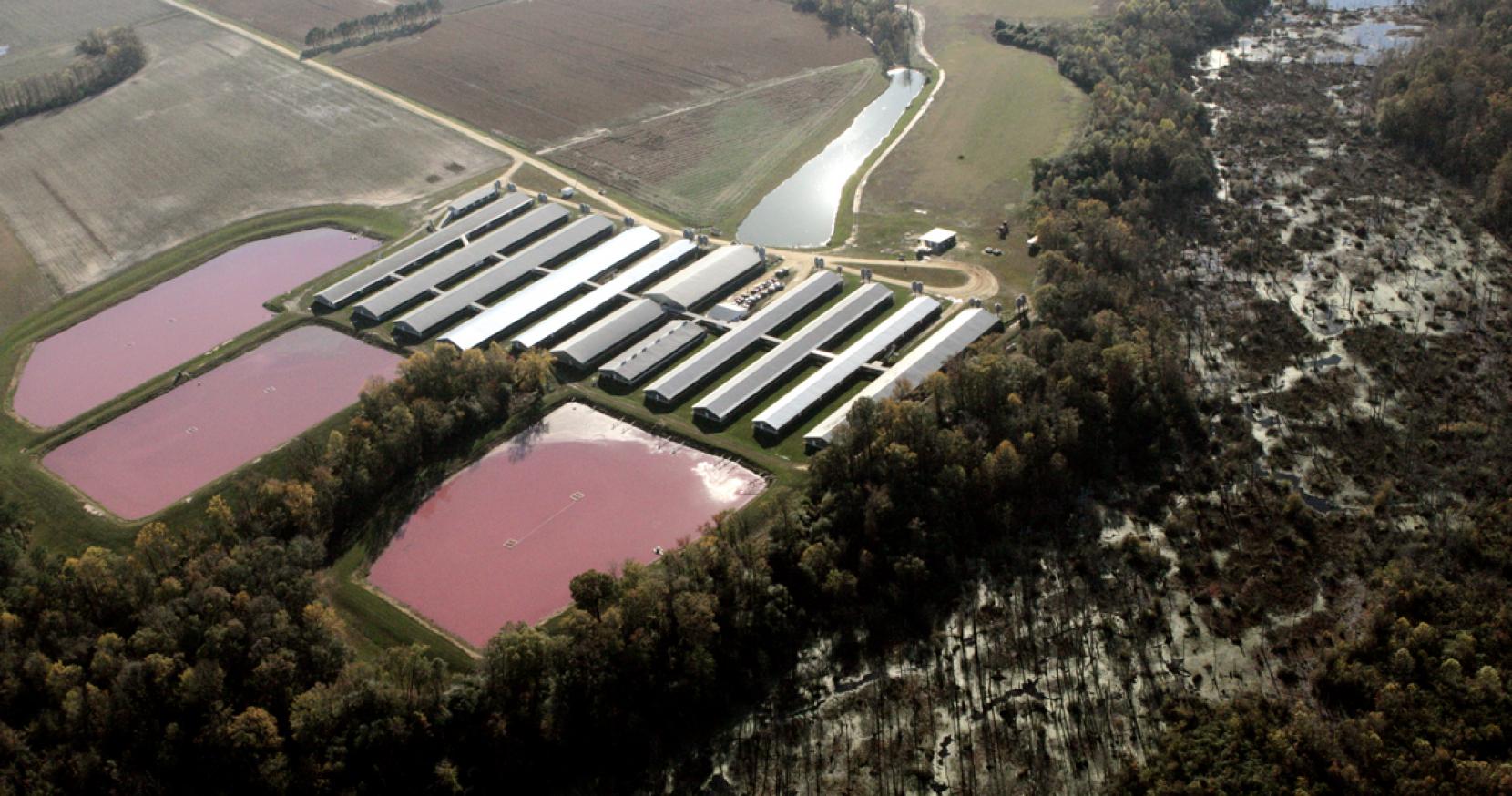The dirty truth about biogas production and how to take action in NC
The North Carolina Department of Environmental Quality is currently accepting public comments about draft water quality permits for 4 of the 19 industrial hog operations that are part of the Grady Road Project, the first project that relies on polluting industrial-scale pits of hog manure and urine to capture biogas. This project, detailed below, is sponsored by Align Renewable Natural Gas – a joint venture of industrial hog producer Smithfield Foods and energy giant Dominion Energy.
The public can submit comments until January 29, and DEQ is holding a virtual public hearing on January 26 at 6 p.m.
North Carolinians can weigh in by submitting written comments on the draft permit to DEQ by January 26, either by:
1) Emailing the following address with the subject line “Swine Biogas,” [email protected], or
2) mailing comments to:
Ramesh Ravella
Department of Environmental Quality
1636 Mail Service Center
Raleigh, North Carolina 27699-1636.
The public may also leave a voicemail with comments on the project at the following phone number: 919-707-9010.
The draft permits under consideration by DEQ would allow 4 industrial hog operations to install caps over hog waste pits to capture methane and other gases. The plans for the other 15 hog operations is still unknown.
These draft permits are supposed to protect rivers and streams near the hog operations in Duplin and Sampson County. But DEQ has failed to require these hog operations to update their waste management plans to account for the increase in harmful nutrient pollution that results during biogas production.
Align’s project relies on and entrenches an outdated, primitive system that stores untreated hog feces and urine in large, pits, and then sprays the liquid waste onto nearby cropland.
North Carolinians can make their concerns heard on these permits. The Grady Road Project is Align’s first biogas project planned for eastern North Carolina; Align has announced their plans for additional large-scale biogas projects.
For more details on biogas, the Grady Road project and the permits in question, click here to view the answers to commonly asked questions.
As originally reported in Oct. 2020:
The North Carolina Department of Environmental Quality is taking public comments on a draft air quality permit for the first project that relies on polluting industrial-scale pits of hog manure and urine to capture biogas by Align Renewable Natural Gas – a joint venture of industrial hog producer Smithfield Foods and energy giant Dominion Energy. The public can submit comments until November 20, 2020, and a virtual public hearing will be held on November 16.

As part of this project, called the Grady Road Project, Align will:
- Cap open-air waste pits with hog feces and urine at 19 industrial hog operations in Duplin and Sampson counties to capture biogas;
- lay a maze of 30+ miles of gas pipeline through the low-lying coastal plain to transport the captured biogas; and
- construct anupgrading facility to process all biogas and inject it into the existing natural gas pipeline.
The permit is supposed to limit air pollution from the upgrading facility to be located in Turkey, North Carolina, but the DEQ has failed to account for the significant air pollution from all 19 industrial hog operations involved in the project.
Align’s project relies on and entrenches an outdated, primitive system that stores untreated hog feces and urine in large, unlined pits, and then sprays the liquid waste onto nearby cropland.
Communities in eastern North Carolina have carried the burden of pollution from the lagoon and sprayfield system for too long. DEQ cannot allow Smithfield to make even more profit from its pollution by greenlighting this project.
Attorney Blakely Hildebrand
Capping hog waste pits to make biogas makes water pollution worse, and does little to address noxious odors from industrial hog operations. Covering a lagoon with a digester does not make the lagoon any less vulnerable to flooding during hurricanes or other major weather events. Align’s project harms communities, our rivers and streams, and the air we breathe while Smithfield and Dominion Energy stand to make money by displacing the burden of their pollution onto families and communities. Communities of color in eastern North Carolina disproportionately bear the burden of pollution from industrial hog operations.
“Smithfield promised North Carolinians that it would clean up its mess and install cleaner technology on its hog operations 20 years ago, and the company has failed to uphold that promise,” says Attorney Blakely Hildebrand. “Communities in eastern North Carolina have carried the burden of pollution from the lagoon and sprayfield system for too long. DEQ cannot allow Smithfield make even more profit from its pollution by greenlighting this project.”
Align has yet to disclose to DEQ all critical details about the project, including which industrial hog operations are part of the project and where the company will lay a pipeline.
If the Department approves the Grady Road Project without demanding all information from the industry or addressing all of the pollution problems of the lagoon and sprayfield system, communities, our rivers and streams, and the air quality in eastern North Carolina will suffer.
The Grady Road Project is the first of several large biogas projects planned for eastern North Carolina. Additional information on the project is available here in English or here in Spanish.
